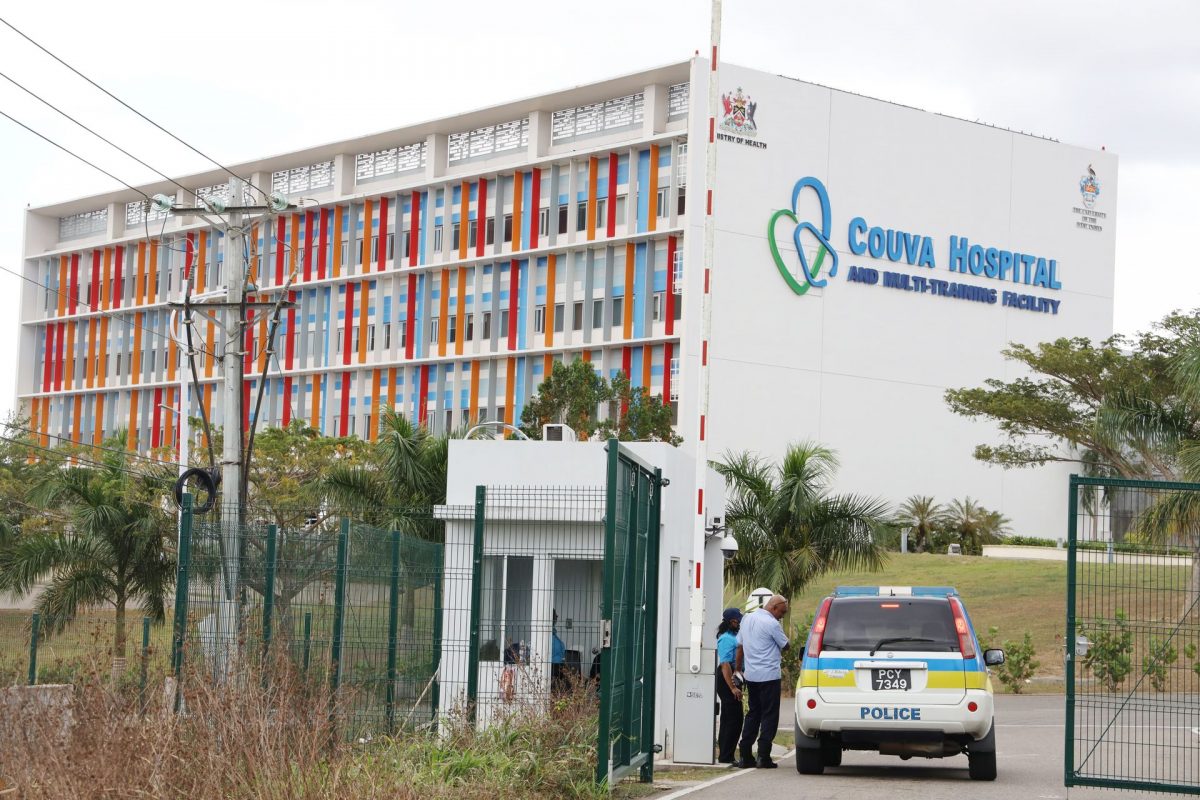(Trinidad Guardian) Chief Executive Officer of the North Central Regional Health Authority (NCRHA) Davlin Thomas has created a firestorm following claims that the new team of doctors he put into the rotation at the Couva Hospital achieved a 60 per cent decrease in mortality of COVID-19 patients. Thomas issued a media release just after 1 am Saturday, saying that the new team of doctors also achieved a 25 per cent increase in discharges.
However, in a response late Saturday, the T&T Medical Association (TTMA) bashed Thomas for his statement, saying that it has “serious concerns” about it. The TTMA went so far as to accuse Thomas of manipulating data to serve his narrative and described those actions as “unconscionable.”
“The release only serves to demoralise our frontline healthcare workers who have dedicated their lives over the past year towards COVID-19 management,” the body said.
Meanwhile, the T&T Registered Nurses Association (TTRNA) also took umbrage at Thomas’s statement.
In a social media post, the TTRNA said that it was a “most shocking statistic and an even more shocking implication.”
Both Health Minister Terrence Deyalsingh and Chief Medical Officer Dr Roshan Parasram also distanced themselves from Thomas’s data.
When asked about Thomas’s statement and figures at Saturday’s COVID-19 update, Deyalsingh said the media release was “open to interpretation” and passed further questions to Parasram.
“The Chief Medical Officer and I have been discussing it and he would give the answer,” Deyalsingh said.
But Parasram said he too had heard Thomas’ announcement and did not know where the figures came from.
“What we have been doing all along through the epidemic is mortality and morbidity meetings and that happened every month, so that has been ongoing,” Parasram said.
The question raised by the media was whether the former team of doctors were lax in their responsibilities and the death rate had improved after they were gone. Parasram said that the Ministry of Health had not found that to be the case.
“There is a group of physicians, all the hospitals get together, we look at the cases to learn what has happened and why it has happened. We have not found anything untoward so far,” he said.
Parasram said if the group “picks up on anything untoward” action would be taken against the specific RHAs.
“When you say statements like that, a 60 per cent reduction at an institution, we see numbers remain more or less the same in terms of deaths throughout the system,” Parasram said.
“It could just mean that there are more deaths at another institution in that time frame but again it has to be looked at.”
Thomas says new team used ‘counter-intuitive, outcome-based strategies’
Speaking to Guardian Media early Saturday, Thomas attributed that turnover to the new team “using counter-intuitive, outcome-based strategies” that the old team did not utilise. He said these new strategies changed the “processes and status quo” and “reframed care to engage multidisciplinary team simultaneously.”
The new team, Thomas said, understood that the disease “is new to the entire world.” Thomas, however, did not respond to subsequent questions for more details on what exactly the processes and strategies were.
But, the TTMA said, “The objective data reveals that between the 18th to the 27th, the national seven-day average mortality fluctuated between 12-14 deaths /day and has risen even further thereafter. The suggested death rate at the Couva Facility is not reflected at all in the national average and hence has made no improvements to the lives of our population who continue to face this onslaught.”
According to the TTMA, statistics cannot be viewed in silos. The medical body sought clarification on four issues, including whether the NCRHA have any evidence to establish that the new team, which replaced four senior doctors who were rotated out of the system, brought about the “so-called reduction in the mortality.”
“It is also possible, among other factors, that this result may be due to the medium-term impact of the implementation of the policies of the outgoing team,” the TTMA said.
The TTMA said that recent changes to the admitting criteria at the Couva facility “specifically excluded” the North West Regional Health Authority and the South West Regional Health Authority from admissions, “which would effectively have a significant reduction in the numbers of severely ill patients being admitted and therefore these patients’ deaths now occur outside of the facility instead of within.”
The TTMA said, “These deaths also need to be accounted, as they do remain a resultant impact of management changes at the CMMF.”
The TTMA said that if the management practices at Couva had created measurable results in eight days, then the standardised policies would be rolled out to include the changes.
“The TTMA strongly abhors the use of these statements to vilify highly efficient healthcare workers for ulterior reasons and do not serve any purpose in the fight against the pandemic,” the medical body said.










